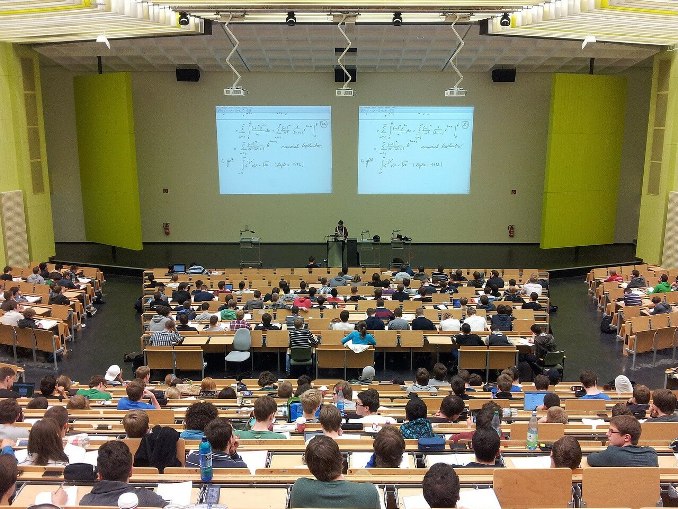-
Financial Engineering – A new Course in Financial Engineering (Master of Science) at DISC TU Kaiserslautern
- August 16, 2018
- Posted by: seo
- Category: Uncategorized
No CommentsIn-depth knowledge of methodology, modern financial mathematics and actuarial theory and their statistical and numerical use in practice are increasingly important in the finance and insurance industry. Regulators now also set strict risk assessment requirements for business portfolios, and these require an understanding of the latest statistical methods and actuarial models. A combination of methods -
Simple and most effective tips to find the best overseas education consultants in New Delhi
- January 7, 2018
- Posted by: seo
- Category: Education, Study in Germany
German Education Consultant:- Many students want to go out of the country for higher studies. This is always a great choice because they can compete with students from the entire world, they can get the better education via international curriculum and the faculties. But getting admission in a foreign university is never easy. There are -
Bachelor of Hospitality Management – Education, Growth and Opportunities
- January 3, 2018
- Posted by: seo
- Category: Education, Hospitality Management
“Hospitality management is a paced growing and rewarding field where you have a lots of opportunities to progress in various sectors and disciplines.” The hospitality management industry is an active and bustling service industry present in all leading Hotels, Restaurants, Event management, Airlines, Railways, Cruises, Lodges, Catering and Dining, Clubs, Gatherings, etc. Hospitality management is -
Everything you need to know about the MBA admission and free education in Germany
- January 2, 2018
- Posted by: seo
- Category: Education, Study in Germany
MBA Germany:- When you apply for MBA in Germany, then getting an approval for the admission is a big things in itself. But if you can do your MBA from Germany with full scholarship and additional stipend, then nothing could be better than this. Thankfully there are some programs that allow doing MBA in Germany -
A Guide that Explain the Cost of Higher Education in Germany after 12th
- December 26, 2017
- Posted by: seo
- Category: Education, Study in Germany
Many students wish to go abroad for higher studies after completing their 12th. But most of the students do not opt for higher abroad studies because they worry about the cost of study after completing their higher secondary. In case you want to complete your B-Tech abroad then Germany is one of the best places -
You can Find the Best Institute for GMAT Preparation in Delhi
- November 18, 2017
- Posted by: seo
- Category: Education
With the rise in the demand for the enhancing the knowledge among the students, parents, guardians, lecturers, staff and so on. To make up the aspirants with the perfect information and the knowledgeable information in different fields of the academics so as to score the high in the level of the competition. The mushroomed with -
Requirements to Study in Germany for Indian Students
- November 16, 2017
- Posted by: seo
- Category: Uncategorized
For any of the course to study in Germany, the Indian students need to meet up the minimum German language requirement. With this, they also need to get the academic record of the 70% or just above in their 12th standard which is mainly required. There are various foundations or the diploma are available for -
Why should you choose to Study in Germany?
- November 7, 2017
- Posted by: seo
- Category: Education
If you want to study abroad, then there are several options available for you. But if you wish to choose an affordable location with the best education, then study in Germany could the best choice for you. There are several benefits that can encourage you to get higher education in Germany. Talking about these benefits -
Study in Germany: Courses, colleges, eligibility, how to apply and cost details
- May 16, 2017
- Posted by: admin
- Category: Uncategorized
Among the most desired destinations to study abroad for Indian students is Germany, a European nation with over 330 state universities and 100 per cent free tuition. The attraction for international students lies not only in the cost but also in its smooth internship programmes (for students who are proficient in German) and the fact -
‘The best engineers come from Germany’
- October 21, 2016
- Posted by: admin
- Category: Uncategorized
“I think the apprentices will be guaranteed a job when we go back, so I think we’ll be OK,” said Rhys from Bristol. He and his fellow fresh-faced apprentices are huddled around a noisy workbench in Berlin. At just 19, he is one of the youngest in his group at this training centre. Rhys, a
- 1
- 2
“I think the apprentices will be guaranteed a job when we go back, so I think we’ll be OK,” said Rhys from Bristol.
He and his fellow fresh-faced apprentices are huddled around a noisy workbench in Berlin. At just 19, he is one of the youngest in his group at this training centre.
Rhys, a keen rugby player, says he is settling into the German lifestyle and has even found a rugby club nearby.
He is one of just 2,200 young workers chosen from some 45,000 applicants by the electronics and electrical engineering giant Siemens for its pan-European training scheme.
Another apprentice, 21-year-old Gabriel from Northampton, says he came to Berlin to learn the German way.
“They are much more precise, they go into detail a lot more,” he says.
“It helps you understand why all the best engineers and creatives come from here.”
It is a point that was recently made by the British business lobby group, the CBI.
It warned that the UK’s traditional educational route, of A-levels followed by a university degree, was not the only path to a good job and could help deepen a skills crisis in the UK.
The CBI called for more earn-as-you-learn schemes, supported by companies, alongside traditional degrees – and cited Germany as one of the leaders in vocational education.
‘Excellent chance’
Siemens’s trainees have come from all over Europe for the company’s three-year programme, that will give them an income while they learn the art of German engineering.
“I know that right now, it’s not the best time to find a job. It’s why I’m doing this in Germany,” says 20-year old Miguel from Madrid.
He hopes to return to Spain, despite dire employment prospects at home, where one in two young people is out of work.
“Everybody knows what the label ‘Made in Germany’ means,” says 22-year-old Vainius from Lithuania.
“This is a perfect example of how they do it. It is an excellent chance for everyone here.”
In Spain, says Miguel, “we don’t have opportunity to study practical and theory at same time.”
In another classroom at the firm’s vast training centre, a British girl stumbles over German grammar. Learning to speak German is part of the deal.
Apprentices here are encouraged to immerse themselves in the culture, offered help in opening a bank account and in other aspects of living abroad: it is a very German approach.
Germany’s vocational system has been around for decades and is deeply embedded in society. A university degree does not have quite the same cachet here that it does in many other developed countries.
Youngsters who are not qualified for or interested in going to university can join a programme in which they work part of the week for a firm that pays them and teaches them relevant skills.
The rest of the time they spend in school.
Chambers of commerce and industry bodies are involved, to ensure that the work and the teaching are matched.
After their apprenticeships, the trainees often have jobs to walk into, in sectors including electrical engineering, sales and marketing, shipping and agriculture.
Roughly two out of three young Germans go through this system.
‘They are loyal and proud’
“It’s a very practical, applied approach, where young people are partly hired, partly subsidised in this dual education system,” says Nora Hesse, a Berlin-based economist at the Open Europe think tank.
“They do receive some money but not too much, and their education is covered by the company that hires them,” she says.
Martin Stoeckmann, who runs Siemens’s training centre, says that the apprenticeships are a good investment for both the young people and the companies involved.
“Around 90% of them stay at Siemens after they finish their education. They are loyal and proud to be at the company,” he says.
The company denies claims that schemes like this represent a brain drain, as Germany sucks in the brightest and best youngsters from all over Europe.
“They are all expected to go home – still working for Siemens – but in their homeland,” says Mr Stoeckmann.
Advocates of Germany’s vocational training point to the fact that despite the global recession, the number of young Germans out of work remains low.
Youth unemployment in Germany is under 8%, compared with 56% in Spain and 38% in Italy.
Since the 2008 financial crisis, the number of 15- to 29-year-olds not in education, employment or training has risen in most OECD countries – except in Germany.
Limited knowledge
However, some argue that there are drawbacks to this vocational bias.
Countries that combine school and work-based education, such as Germany, Austria, Denmark and Switzerland, may help young people into jobs, but in older age, these workers’ skills can become obsolete, says the influential Munich-based Ifo Institute.
Knowledge is also limited to the operations of the company that trains them.
Yet with a crisis that has hit growth and the job prospects of many young people across Europe, for the apprentices at Siemens, this system offers hope.
Rhys says he is confident of his own future, thanks to the technical training he is getting.
But he says that back in Britain – where 960,000 people aged 16 to 24 are jobless – many of his friends face an uncertain future.
“I am worried for a lot of other people,” he says.










